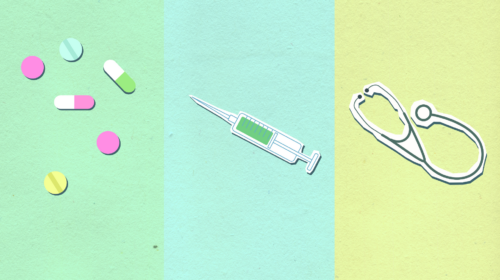Over the past few years, the symbology of addiction in pop culture has been increasingly commonplace.
Take for instance, Euphoria. It’s a hit TV show starring Zendaya (Spiderman, Dune) which revolves around a teenager’s experience with drugs, among other things. Then, there is Nurse Jackie which casts Edie Falco as a drug-addicted nurse who tries to navigate life both on and off the job. Lastly, there is Shameless, a dark comedy about a Chicago family but also exposes the family dynamics of addiction.
That’s just the TV shows. Addiction imagery has become more commonplace in other genres of art such as music and movies as well.
Pop Culture and Addiction
Movies, TV, music – it’s all considered an artform. An artform that is completely subjective and can be molded to suit any ideal or agenda, safe or otherwise. Regardless of the artist’s intentions, art takes on a life of its own, helping shape the civil discourse around something as deeply personal as addiction.
Many contemporary experiences, though often dramatized, are making their way into mainstream media and pop culture.
These experiences range from everyday struggles, our dating experiences, the conversations we find ourselves having at meetings, and our reluctance to admit that we’re in recovery to strangers are all being played out in a realistic and digestible way.
The media delights in both the macabre and the sensational. It’s encouraging that none of these artifacts of pop culture directly condone chemical dependency, and many of them uphold the virtues of recovery, suggesting that it’s possible to live a normal life even though you’re an addict as long as you stick to your recovery plan.
Confronting Antiquated Addiction Symbols
We’ve seen a pathology of works, going all the way back to 1945’s “The Lost Weekend” to 2000’s “Requiem for a Dream,” which depicts the worst-case scenario of addiction: An undignified and hopeless ending from which there is no escape… only overdose, coma, and death.
These narratives and symbols, however useful they may be as deterrents, have done their part to reinforce chemical dependency as a sort of moral failing to be scorned and looked upon with horror rather than a medical disease that can be treated and managed.
Admittedly, there have been some exceptions peppered within these doom-and-gloom narratives. Movies like “28 Days” and, to a lesser extent, “Clean and Sober” have represented the power of the recovery process and the strength one can take away from their time in treatment, even in the face of unspeakable adversity.
An Indicator of Broader Change?
Does art imitate life, or does life imitate art? It’s worth examining what factors drive the representation of addiction. It’s also worth noting that the representation of addiction in the media has often followed a shift in clinical and institutional perception of the disease. Addiction and chemical dependency are now the subject of scientific rigor rather than institutional disregard. Uncontrollable substance-use is now regarded as a disorder and not an indictment of moral character.
While the distribution of narcotics continues to be prosecuted with the full resources of the United States drug budget, non-violent offenders are increasingly given the option of entering treatment rather than going to jail. This was not the case just a few decades ago when offenders received disproportionate sentences for simple possession convictions.
In 2015, the Justice Department released 6,000 non-violent drug offenders, who were placed into halfway houses and eventually put on supervised release.
In addition to this action, which represented the largest one-time release of prisoners in American history, President Obama granted clemency to nearly 100 non-violent drug offenders throughout the course of his term.
It’s difficult to discount the impact of these widespread institutional reforms on popular culture. As society sees the increasingly positive effects of a treatment-first approach to managing drug and alcohol abuse, it also sees that addiction is not a death sentence nor a character flaw.
A Balancing Act
While it’s never positive to glorify substance abuse or addiction, there is value in depicting the circumstances surrounding this disease honestly and presenting them exactly for what they are without the filter of stigma.
This includes calling attention to the factors that first lead to substance abuse and the positive, life-saving impact of recovery. One of the challenges of de-stigmatizing addiction, both in society and the media, is making sure the dangers of substance abuse don’t get watered down or diminished. The task of representing addiction in the media is likely to get easier as the collective attitude toward drug and alcohol addiction shifts towards a posture of rehabilitation rather than retribution.
It’s both. While we would never wish addiction on anyone, and we think people need to be wise consumers of pop culture, there is real value in presenting something as raw as addiction to the world. People with addictions are still people with stories that deserve to be told.
The Ideal Addiction Symbols (Real Life)
For perhaps the first time in their lives, those who suffer from alcohol or drug addiction are seeing depictions of their disorder in the media and proudly identifying with characters’ ability to manage their addictions daily.
They see that it’s possible to work, live, raise a family, and contribute to society without being defined by their pasts. This is important because, whether we care to admit it or not, most of us are influenced to some degree by the situations and characters we see on television, whether we identify with the man or woman on the screen or we’re just rooting for a happy ending.
A more enlightened depiction of addiction management empowers the recovery community and lets them know that there’s hope, no matter what.
And if there’s hope, there’s light.
And if there’s light, there’s a way.
And if there’s a way, there’s a better path for us all.

























